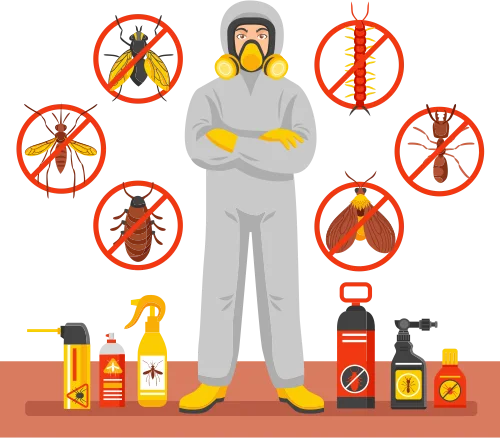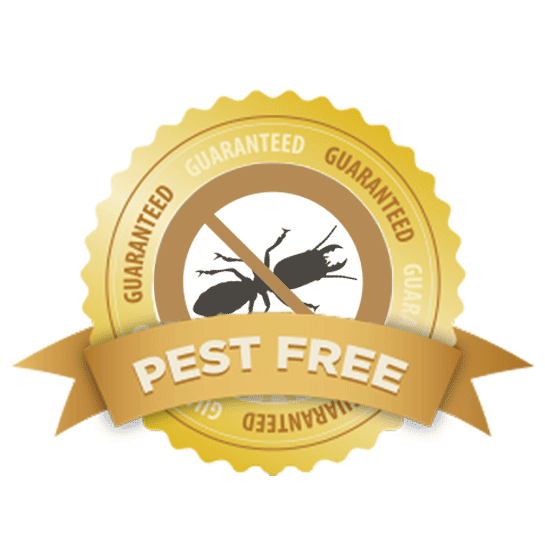Comprehensive Rodent Control Coquitlam Services for Peace of Mind
Comprehensive Rodent Control Coquitlam Services for Peace of Mind
Blog Article
Safe and Reliable Parasite Control for Lasting Security
The value of safe and trusted pest control can not be overemphasized, specifically in an age where ecological problems are paramount. Effective bug administration calls for a multifaceted technique that stabilizes ecological stability with the requirement for efficient bug reductions. By discovering environment-friendly solutions and integrated pest administration techniques, homeowners can attain enduring protection against intrusive types while protecting helpful ecosystems. The subtleties of these methods may not be instantly clear, prompting a closer exam of the practices that can lead to sustainable pest control end results. What actions can be taken to ensure both security and efficacy in pest management?
Comprehending Bug Control Approaches
Pest control encompasses a range of approaches focused on managing and eliminating unwanted pests and rodents that can threaten both health and residential or commercial property. Recognizing these techniques is important for effective parasite administration.
The key categories of insect control techniques include mechanical, organic, and chemical methods. Mechanical methods involve physical obstacles and traps to avoid bug entrance and capture undesirable species. For example, making use of screens on windows or using sticky catches can considerably lower pest populaces without presenting harmful materials.

Chemical pest control is often the most identified approach, using pesticides to eliminate insects. These chemicals can be reliable but need to be utilized with caution to avoid unfavorable effects on non-target varieties and the setting.
Benefits of Eco-Friendly Solutions
Just how can green solutions transform bug control practices? The adoption of eco-friendly parasite control approaches offers various advantages, significantly enhancing the efficiency and security of parasite monitoring.

One more benefit is the positive effect on regional biodiversity. Environmentally friendly services are developed to target certain insects while preserving valuable pests and wildlife, advertising a balanced ecosystem. This method lines up with the growing consumer need for sustainable practices, enhancing the track record of bug control service providers.
Integrated Insect Management Techniques
The execution of eco-friendly services normally causes the adoption of Integrated Pest Management (IPM) techniques, which additionally improve insect control effectiveness. IPM is an alternative technique that combines multiple tactics to take care of parasite populations while lessening environmental effect. This approach highlights the usage of biological, social, mechanical, and chemical controls, guaranteeing a lasting and well balanced method of parasite monitoring.
One fundamental element of IPM is the extensive analysis of bug activity and ecological conditions. By monitoring bug populaces and determining their life process, professionals can apply targeted interventions useful content that interrupt the parasite's habitat or lifecycle, reducing reliance on chemical pesticides. Furthermore, social practices such as plant turning and habitat control can significantly decrease pest establishment and recreation.
Another vital part is making use of organic control agents, such as helpful insects or microbes, which can normally suppress bug populaces. When chemical applications are essential, IPM prioritizes making use of low-risk pesticides and applies them uniquely, lessening direct exposure to non-target organisms and human beings.
Integrating IPM techniques not just improves insect control performance but also promotes a safer ecological community, lining up with the growing demand for sustainable methods in parasite monitoring.
Safe Practices for House Owners
Recognizing the value of risk-free methods in bug control can equip property owners to effectively take care of pest problems while guarding their health and wellness and the setting. Carrying out preventative actions and safe approaches is essential in lessening exposure to hazardous chemicals.
House owners ought to first examine their atmosphere for conditions that bring in insects, such as standing food, water, and clutter waste. On a regular basis cleaning and securing entrance points can hinder parasites from invading the home. Making use of all-natural deterrents, such as necessary oils or diatomaceous earth, can give effective options to chemical pesticides.
When chemical therapies are required, homeowners need to choose products that are especially classified as safe for household usage. It is necessary to adhere to application standards thoroughly to prevent too much exposure. Using targeted therapies in areas where parasites are identified, instead than covering splashing, can significantly decrease chemical use.
Lastly, preserving open communication with parasite control professionals is important. House owners must ask about the security of items used and request environment-friendly choices whenever feasible. By embracing these safe practices, homeowners can create a much healthier living atmosphere while properly handling pest concerns.

Tips for Long-Term Defense
Developing a pest management approach that stresses long-term security can considerably enhance the effectiveness of the secure practices formerly talked my explanation about. To attain this, house owners need to apply routine inspections of their residential property, focusing on concealed locations such as attics, basements, and crawl areas. Early detection of pest activity is important in avoiding invasions from taking hold.
Furthermore, maintaining a tidy atmosphere is vital. This includes proper food storage space, without delay cleansing spills, and routinely taking care of garbage. These techniques lower attractants that attract pests into this contact form the home. Moreover, securing entrance points, such as fractures around doors and windows, can effectively block possible parasite accessibility.
Landscape design ought to also be considered; maintaining plants cut and preserving a range between plant life and the home minimizes concealing places for insects. Making use of natural deterrents, such as necessary oils or diatomaceous earth, can better dissuade infestations without considering extreme chemicals.
Lastly, teaming up with a professional insect control solution for routine analyses can offer an added layer of safety and security. These specialists can supply customized suggestions and progressed treatments, making sure that your home stays shielded against parasites in the long term.
Verdict
To conclude, safe and dependable bug control requires a diverse approach that emphasizes environment-friendly techniques and integrated insect administration. By applying all-natural deterrents, performing routine inspections, and preserving correct cleanliness, property owners can considerably decrease pest populations while protecting useful bugs and the atmosphere. Cooperation with professional parasite control services enhances the effectiveness of these strategies, making certain customized options that offer long-term protection and comfort against future problems.
Reliable insect management requires a complex strategy that stabilizes environmental stability with the requirement for efficient pest suppression. The fostering of eco-friendly parasite control techniques offers various benefits, significantly enhancing the effectiveness and safety and security of parasite management.The implementation of green services normally leads to the fostering of Integrated Pest Administration (IPM) strategies, which further boost insect control effectiveness. exterminator coquitlam. By keeping an eye on pest populaces and identifying their life cycles, practitioners can execute targeted treatments that interfere with the insect's habitat or lifecycle, minimizing reliance on chemical pesticides.In conclusion, trustworthy and safe pest control needs a complex approach that emphasizes green approaches and incorporated parasite monitoring
Report this page